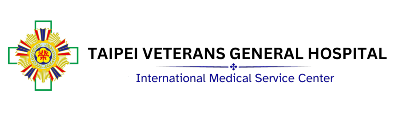The number of cases of aortic stenosis has risen along with the increasing elderly population around the world. Among people aged 75 years or older, 3.4% of them have severe aortic stenosis. If symptoms appear, the standard treatment is surgical aortic valve replacement. However, over 30% of patients are not able to undergo surgery due to their advanced age or combination of other diseases. Once the symptoms of severe aortic stenosis appear (chest pain, syncope, and heart failure), the death rate for patients receiving medication and not undergoing surgery reaches up to 50% within one year. The five-year survival rate is almost 0%. So, the mortality risk is not less than cancer. Transcatheter aortic valve implantation (TAVI) is a less invasive approach which offers a new alternative for those patients deemed inoperable or of high surgical risk.
Taipei Veterans General Hospital was a piorneering hospital in Taiwan to perform TAVI procedure. The first case in VGH was performed in 2010. Professionals in the fields of cardiology, cardiac surgery, anesthesia, radiology, and neurology have joined together to form the specialized TAVI team. As of today, a total of 150 operations have been performed. The team has also pioneered non-intubated procedure with local anesthesia and use of the percutaneous vascular closure device in 2013 to minimize operative complications. The 3M principle ─ multidisciplinary, multimodality, a minimalist approach ─ was applied successfully during procedures, establishing a model for interdisciplinary team cooperation.
Taipei Veterans General Hospital was the forerunner in Taiwan to perform TAVI procedure and its multidisciplinary team was the few team in Taiwan to receive IRB approval from the Department of Health to perform TAVI procedure. The TAVI team pioneered non-intubated procedure with local anesthesia in 2013. A total of 138 procedure has been completed. Despite our patients had a predicted mortality rate according to EuroSCORE reaching 20 %, we achieved the lower complication rate and mortality rate than most countries in the world. These outstanding results have made our team the envy of the world:
Medical Service Results
- We are the few hospital in Taiwan which is able to perform valve implantation via six different routes including femoral artery, subclavian artery, aorta, apex, abdominal aorta and carotid artery. This gives patients with peripheral vascular disease more options and reduces the risk of major vascular complications. The mortality rate increases by 50% when there is a rupture of large blood vessels and severe bleeding. Since we can provide more valve implantation routes to patients with a peripheral vascular disease, our major vascular complication occurrence is 3.4%, which is lower than 4.1% to 10.9% occurrence rate in the U.S. and Europe.Table1
- If a stroke occurs during the procedure, the 30-day mortality rate is 3.5 times higher. Our stroke rate is 1.3%, which is lower than 1.5% -4.0% occurrence rate in the U.S. and Europe.Table1
- If moderate or severe paravalvular aortic regurgitation occurs after the procedure, not only the heart failure symptoms of the patient will persist but also the mortality rate of the patient will get higher (3.8 times). Before we perform the procedure, each patient undergoes detailed imaging (including transthoracic echocardiography, transesophageal echocardiography, cardiac catheterization and computed tomography with three-dimensional reconstruction) evaluation and we participate in detailed discussions during the pre-procedural meeting. Meticulous implantation technique is also taken during the procedure. As a result, the occurrence rate of moderate or severe paravalvular aortic regurgitation has been reduced to 2.0%, which is lower than 5.1% -16.2% occurrence rate in the U.S. and Europe.Table1
- The electrical conduction system of the heart locates below the aortic valve. Therefore, a significant percentage of patients must have a permanent pacemaker implanted to treat their slow heart rate after TAVI. However, implantation of a permanent pacemaker not only extends the hospital stay, but also carries a risk of complications, and increases the likelihood of heart failure and repeated hospitalization of patients. Only 4.1% of our patients require implantation of permanent pacemakers after the procedure, which is much lower than the implantation rates from other countries around the world (10%–26.3%).Table1
- By reducing procedural complications to a minimum, the Taipei Veterans General Hospital’s TAVI team has lower post-procedural mortality rate for our patients: Our 30-day mortality rate (5.4%) is lower than the rate of other countries (4.5% – 8.4%) and our one-year mortality rate (14.0%) is far lower than the rates in U.S, and Europe (18.4%- 24.3%).Table1
The outstanding results of the Taipei Veterans General Hospital’s TAVI team were published in high-impact factor magazines including the European Heart Journal (SCI IF= 15.064). The team was invited to perform live demonstrations for the Annual Convention and Scientific Session of the Taiwan Society of Cardiology in 2014 and for the live course of Taiwan Society of Cardiovascular Interventions in 2017. TAVI has been selected as one of the four top specialties of Taipei Veterans General Hospital and media reports on the team have appeared in Business Weekly magazine, TVBS, and other media.
At present, under the leadership of Dr. Chen, Ying-Hua and Dr. Zhang, Xiao-Huang, our TAVI team has sixteen cardiac surgeons and physicians who meet the requirements of the Bureau of Central Health Insurance, Department of Ministry of Health and Welfare. Not only are Dr. Chen and Dr. Zhang the few qualified proctors for Metronic devices in our country, but Dr. Zhang is also the only cardiovascular surgeon proctor for Metronic in Asia. Both of them are also qualified proctor free doctors for Edward devices. Looking forward to the future, our TAVI team will be able to provide more and more high-quality services.
Table1. The outstanding results of the Taipei Veterans General Hospital’s TAVI team 
Estimated Cost
For estimated medical costs, please contact International Medical Services Center.


